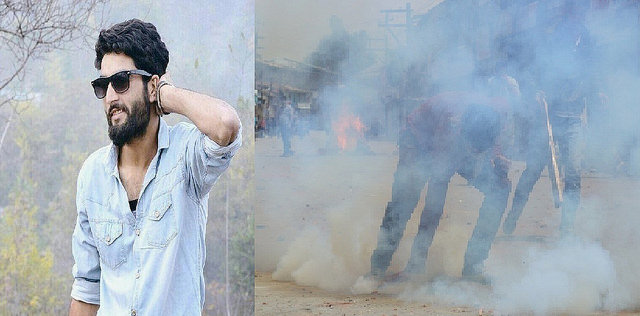By Raqib Hameed Naik
The death of a young man in Kashmir no longer bothers the mainstream media, even if it happens in the wake of PM Modi’s visit to the Valley. Even for the Kashmiri people, such news have become so common, that it would take weeks to calculate similar, unaccounted murders of civilians at the hands of security forces over a given period.
Gowher Nazir Dar, 22, had all the traits of a ‘common’ Indian youth: he was studying engineering, his family had high hopes from him and he wished to move to Delhi for a better life. What separated him from other Indians, however, is his identity. He was a Kashmiri. And often, that can be the reason for a death, as his family found out. A week later, even as his family continues to mourn, they know that they are not alone. In Kashmir, death is common, the condition tragic, and the blood politics over innocents dying nothing short of nauseating.
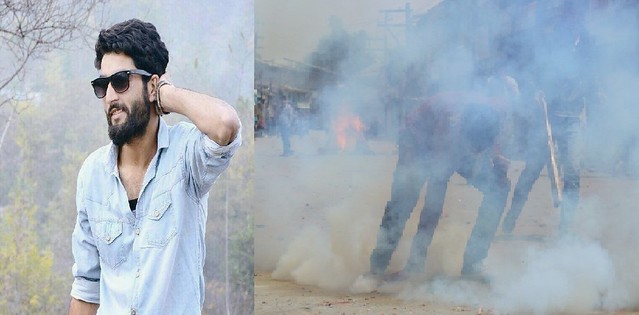
Dar was shot by security forces on the Srinagar-Baramulla highway at Zanikote, on the outskirts of the city on Thursday evening by a tear smoke shell shot on his head from a very close range but the family has contested this fact, alleging that their son was shot by a bullet in his head.
Kashmir now has an almost-choreographed reaction to the death of an innocent, for they are so common: people from some parts of the valley came on streets, downed their shutters in protest, separatist issued their separate statements calling for a unified one-day shutdown on Sunday, November 8. Kashmir, on November 9, had apparently returned to normalcy.
But the students had decided to not give up: On Monday, youths in large numbers came on the roads and forcefully enforced shutdown in downtown areas which is often related to the Gaza strip of Palestine. The slogans: “Today, it is Gowher, tomorrow it can be one among us” openly questioned the politics of separatist leaders who have made a one-day shutdown call a trend aftermath every killing.
The protestors who wished anonymity alleged separatists leaders of lacking a clearer vision and decisive methods to put a brave face against the killings and tried to take out a procession toward the deceased youth home in Mustafabad area in HMT, Srinagar but was foiled when security forces intervened with non lethal weapons like tear gas shells, pellet guns and abuses.
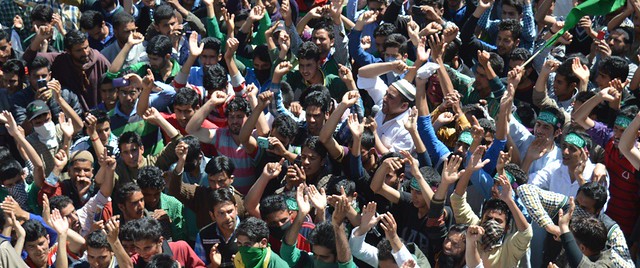
From doctors to university students, everyone protested in their own ways. The engineering college of slain youth in Kashmir announced ‘Shaheed Gowhar Nazir’ Scholarship, which they claim will be given to an orphan student every year on the day of his killing.
Most of the mainstream Indian media, which was more occupied with PM Modi’s 80,000 crore package for the state, forgot to report the death of Dar, who passed away the same day.
“The neglecting attitude of Indian media, which addresses peaceful protestors as a mob and gives a clean chit to the security forces without even cross checking the facts has became an order of the day for Kashmiris,” Umar Mukhtar a Kashmir University student told.
The politics over blood has always been a part and parcel of political leaders for gaining trust of local populace in Kashmir. The Peoples Democratic party, the coalition partner of BJP in state government, was very vocal during its last stint in opposition when most of its members were seen jumping in the well of the assembly as a mark of protest seeking answers for the killings from then NC-Congress coalition government. Now, of course, it has become immune to repeated security forces excesses.
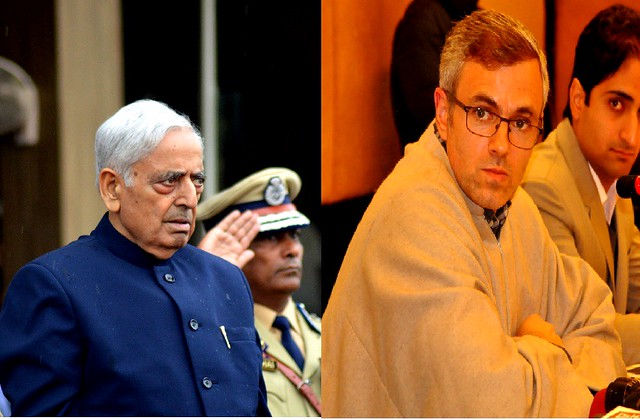
The pain of the oppressed has now, ironically, been taken over by the National Conference, which is presently in opposition. The party issued statements on killings and condemned them, conveniently forgetting that hundreds of Kashmiri youths were killed by security forces when it was ruling the state since 2009.
Under the ‘young’ leadership of Omar Abdullah, the Valley saw one of its most-troubled periods, with 120 people, mostly youths shot by security forces, dead in five months of protests in 2010.
If the separatists have a template for protests, the government has one too: there a Magisterial inquiry has been ordered to probe into Gowher’s death. What Kashmiris also know, that this would be the umpteenth time an inquiry has been ordered and is unlikely to yield any result.
Hundreds of magisterial enquires and probes were initiated by successive governments in last two decades but most are yet to finish their investigations. Even if they do, the conviction rate is almost negligible. These enquiries are seen more as mere hogwash, for over the years it has become quite evident that the governments in J&K have been using enquiries as ploy to calm down the public for the time being with the intentional approach of ‘time heals wounds’.
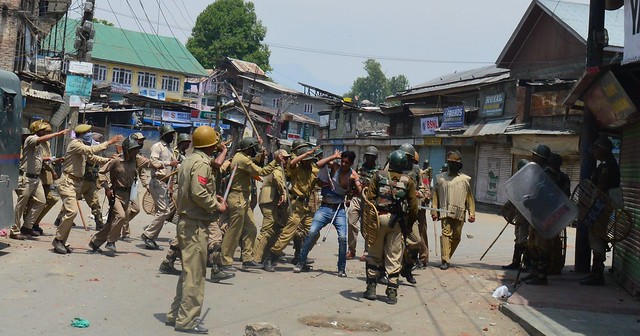
” When the PDP came to power for the first time in 2002 with the promise of ‘healing, touch policy’, Kashmiris had hopes for the first time that this Kashmir centric party is really there to heal their wounds. But the promise has been falling apart with new wounds being inflicted on people in the backdrop of silence of the same ‘healers’,” said Sheikh Ashiq Ahmad, a valley-based activist and ex President, Kashmir Chambers of Commerce and Industry (KCCI).
For the Dars, the tragedies did not end there: when the news of Gowher’s death was revealed to his grandmother, the shock was too much for the old lady to handle, and she died of a cardiac arrest, just a day after Gowher’s death.
“Modi came here and spoke about “Insaniyat” but barely hours after his departure, the very same “Insaniyat’’ shot dead my friend. Is being Kashmiri a fault? Can Modi’s 80,000 crore package bring back Gowher? How many more youths are going to be targeted in this bloody conflict? And they ask why do Kashmiri’s protest,” Toheed Alam, a friend of Gowher told amid tears.
The death of Gowher has shocked the students and faculty of his engineering college who are yet to accept the reality, that he is no more. His family was expecting him to go on to become a computer engineer, so that he could support his father, who earns a meager sum from running a small workshop. Unfortunately, their dreams were short-lived as Gowher returned back home in a casket.
With Kashmiri’s questioning the separatist politics and all out attack of opposition parties on ruling PDP-BJP, time will stay witness what future holds for the blood politics in state.

